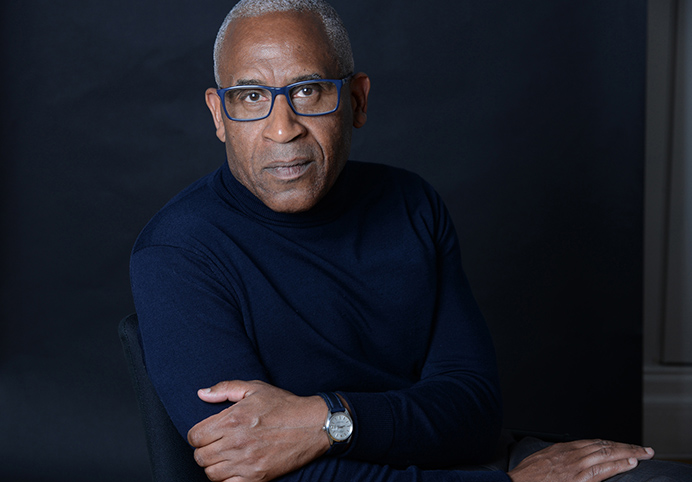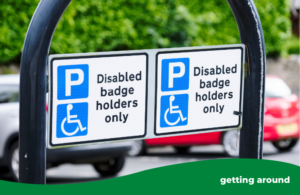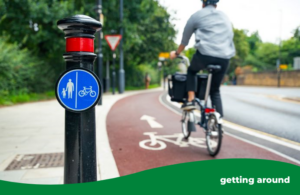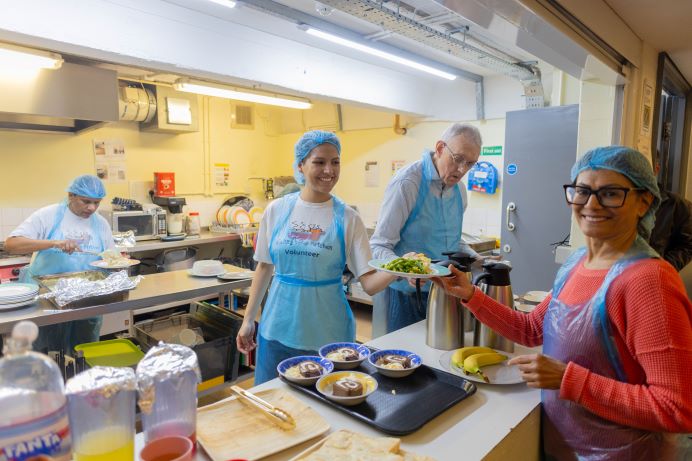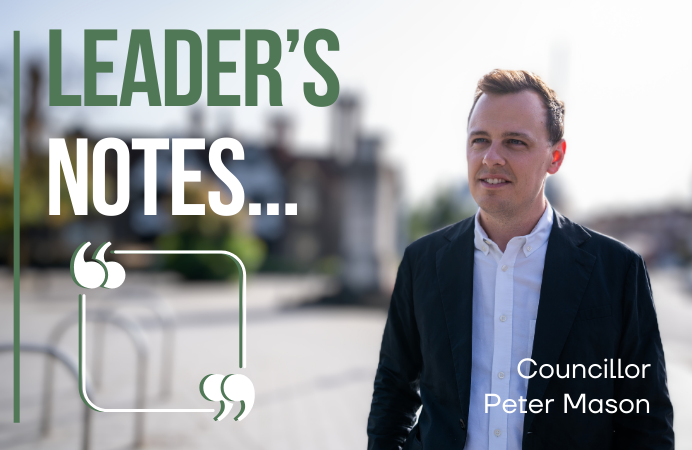“Above all, I want to hear from ordinary people. We want to know their stories, their challenges, their hopes,” said Lord Simon Woolley, who is the chairperson of Ealing’s independent Race Equality Commission.
“We feed it in and what comes out from that is how they want their borough to be,” he added.
The commission was recently set up to carry out a review to understand the impacts of racial inequality in the borough and how it can be reduced.
Councillor Joanna Camadoo-Rothwell is vice-chairperson, and they have been joined by 10 other commissioners as they work through topics like education, employment, crime and justice, health and housing. The commission held its first meeting in January and is due to present an initial report to the council in May.
The other commissioners are: Ami Kourouma, Lawand Omar, Edmund Akeju, Nicola Flash, Rev Mark Poulson, Denise Charles, Edmund Yeo, Mohan Luthra, Laura Forrester and Callum Anderson. You can read more about them in our previous story.
Over the past 25 years, Lord Woolley has helped transform political and civic institutions, ensuring they are inclusive and representative. He is the director and one of the founders of Operation Black Vote, a national and internationally renowned race equality organisation. He was also the chair of the government’s Race Disparity Unit’s advisory group from January 2018 to July 2020.
He said: “I’m really honoured to be in this role as chair of this commission at this extraordinary time, where Ealing Council, like many authorities around the country are looking at themselves and saying: ‘How can we be better?’ ‘How can we deliver services on a more equitable level and how can we be a beacon of good practise?’”
Lord Woolley said the independent commission will be speaking not just to the council, but to a whole range of local organisations and groups, and to businesses. And members of the public will be invited to share their views with the commission before it reports its initial findings to the council.
How to get involved
Opportunities for residents to get involved with the commission will appear on the council’s website on a dedicated webpage; and will be promoted via the council’s social media (@EalingCouncil on Twitter and @EalingLondon on Facebook). But you can also write to the commissioners by email at raceequalitycommission@ealing.gov.uk or by post at: Race Equality Commission Perceval House, 14/16 Uxbridge Road, Ealing W5 2HL. You can also call 020 8825 6100 to speak to someone.
‘There is a kaleidoscope of things people can do’
“I would argue that we should see privilege as being empowered to make a difference,” said Lord Woolley. “To be allies. We all have a role to play, be it male allies against sexism, white allies against racism or able-bodied people against inequality for disabled people.
“It all comes back to the question ‘What’s my role?’
“And there is a kaleidoscope of things people can do. Some might be bigger, and some might be small, but they all add up to something special.
“I would argue that there is no excuse for us not to try and change our world and that’s why I get excited about heading a commission in Ealing in which we can play our small but significant part in shaping Ealing to be one of the best places in the country, if not beyond.”
‘We want a child to believe it’s possible’
Lord Woolley said he was encouraged by the spirit in which everyone had been approaching the commission’s work and the will to work together to make improvements.
He said: “Now, look, some of the stuff that we will lay bare will be a little bit uncomfortable, I have no doubt about that. But laid bare uncomfortable truths, being honest about them, but having a plan to put them right is a prerequisite for a successful commission.
“There are a number of things around inequality. There are a number of areas of inequality that I want to address – one is the discriminatory factors that happen often by default, but they are none the less discriminatory. And, two, where the inequalities or disparities are so great that wellbeing and life chances become debilitating.
“Particularly thinking around our children, I want every child to feel that the borough is driven to ensure they have opportunities. Now, that is a big ask, a very big ask, but I think you have to aim high; you have to think big.
“I don’t want this to raise expectations that every child is going to get great successes, but we have got to be ambitious. We want to ensure that the pathways are much more readily available then they possibly are at the moment.
“We want a child to believe it’s possible because the barriers in those pathways have been taken away. And then to be able to say to a child, a parent, that with hard work and endeavour you have better possibilities to succeed – then we are doing a good job.”
‘One of those historical moments’
Ealing’s commission was appointed at a time when it seemed to be a bit of a crossroads for society, as several events with global repercussions took hold of everyone’s daily lives – not least the coronavirus pandemic and the murder of George Floyd in the US.
“We really have to remember that these inequalities were very much there before COVID and before George Floyd was murdered,” Lord Woolley said. “But what the double pandemic, which I argue culminated in the perfect storm, has done is stripped bare those inequalities, made them almost raw. It’s like peeling back the skin and realising – for some, for the first time – how awful and deep a wound is.
“It laid it bare to the extent which, frankly, we could no longer ignore it. The raw exposure of the inequalities forced people to react.
“Throughout history, we have had to have great awfulness to build a better world. And this is one of those historical moments.”
